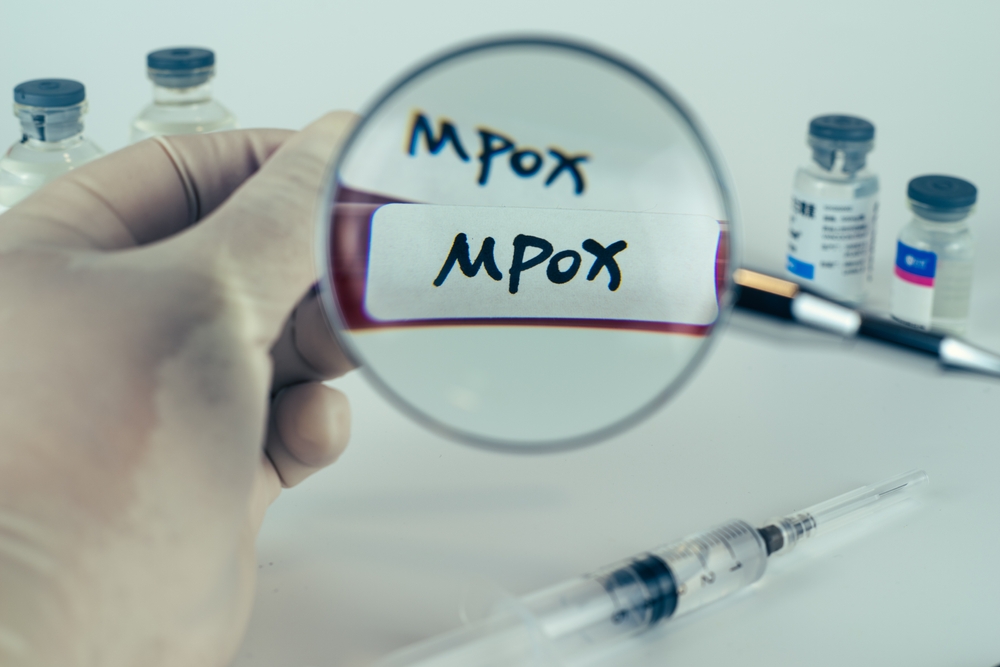
MPox Information
Mpox Vaccine and Testing at DAP Health
Need to get your Mpox Vaccine? DAP Health’s Sexual Wellness Clinics continue to offer Mpox vaccines to the community at no cost, simply call to make an appointment for your vaccine today. Vaccination is highly recommended for prevention. No additional booster doses are recommended after you have received the two-dose initial series.
Having Possible Mpox Symptoms? DAP Health’s Sexual Wellness Clinics are here to help you. If you feel you may have Mpox symptoms and need to get tested, please call us today for a full STI screening, including testing of Mpox lesions.
Transmission
Mpox is known to spread through prolonged close physical contact with someone who has symptoms.
- Rash, bodily fluids (such as pus or blood from skin lesions), and scabs are particularly infectious.
- Respiratory droplets, ulcers, lesions, or sores in the mouth can also be infectious, meaning the virus can spread through saliva.
- Clothing, bedding, towels, or objects like eating utensils/dishes that have been contaminated with the virus can infect others.
- People who closely interact with someone who is infectious, including health workers, household members, and sexual partners are at greater risk of infection.
- The virus can also spread from someone who is pregnant to the fetus from the placenta, or from an infected parent to child during or after birth through skin-to-skin contact.
It is unclear whether people who do not have symptoms can spread the disease.
Symptoms
Symptoms include rash, headache, fever, muscle and body aches, swollen lymph nodes, and back pain. The CDC recommends that anyone with a new or unexplained rash get checked by a medical professional.
Prevention
While the vaccine is effective in preventing illness from an exposure, it is possible to still be infected. However, symptoms generally are milder and the illness resolves in relatively shorter period than those unvaccinated.
Mpox can be transmitted through skin-to-skin contact which includes sexual contact. Prevention includes avoiding physical contact with someone who knows they have Mpox or who has a rash or skin lesions that may be associated with Mpox.
Testing
If Mpox is suspected, diagnostic samples must be collected from the suspect rash. The Clinician’s will take a swab of the fluid of vesicles, pustules, or dry crusts. Samples are sent to LabCorp for processing.
Treatment
Treatment is available through DAP Health in association with Riverside County Department of Public Health.
How long will it take for the scheduling team to reach out to me?
First dose: The scheduling/assessment team is reaching out as quickly as they can. They will contact you when your name comes up on the list.
Second dose: People who received their first vaccine at DAP Health will be automatically contacted to schedule a second dose appointment, dependent upon our supply of vaccine. Based on vaccine availability second doses are currently being given four to six weeks after the date of the first dose.
If you received your first dose somewhere other than DAP Health and you have received any services at DAP Health within the past year, please reach out to our Mpox hotline at 760.656.8432 or email [email protected]
If you received your first dose somewhere other than DAP Health and you have not received any services at DAP Health within the past year, Riverside County Department of Public Health is offering second doses via their Mpox Vaccine Interest Form.
DAP Health has launched an MPox hotline, which can be reached at 760-656-8432 or [email protected], for community members who have questions or concerns regarding the virus.
Trusted Sources of News and Updates:
California Department of Health








